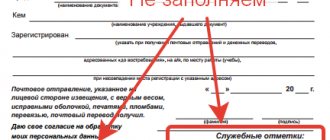In accordance with the law, a complaint can be filed anonymously, but not every authority will accept it for consideration. A complaint is an expression of one’s dissatisfaction with the work of a certain sphere (social, law enforcement, educational, medical, and so on). After the complaint is submitted, government bodies that have the authority to consider it and make a certain decision, which may favor both the citizen who filed the complaint and the one who is the subject of the complaint. In this article, we will look at how you can submit an anonymous complaint and which government agencies can accept it.
What kind of complaint is called anonymous?
Anonymous complaints are usually sent in cases where a person has information about a serious offense or the commission of illegal actions that are planned.
An anonymous complaint is called if personal information is not indicated in the written dissatisfaction:
- Last name, first name and patronymic of the citizen who makes the appeal;
- A means of communication, which can be either a mobile phone or a landline telephone; in addition, this can also include an email address;
- Full address where the citizen is registered or resides;
- Identity document details;
Important! However, anonymous complaints generally do not have information about the person, but contact information is required, since the author of the complaint is waiting for a response, which can only be transmitted using contact information.
If there is no information about the citizen who made the appeal, then such a complaint should be transferred only to those bodies that have the ability to work with such appeals.
Sometimes citizens indicate incorrect connections (incorrect full name, address), in which case the complaint will also not be considered.
Important! Regardless of whether the complaint is anonymous or not, it should not contain obscene language or threats.
Where to report illegal business activities
Sometimes life can be quite unfair, and it is precisely those entrepreneurs who succeed in business who conduct their activities illegally. Honest citizens can correct this situation by filing a complaint with the relevant authorities.
As a rule, such offenses are reported to one of the departments dealing with economic security matters. If an individual makes a complaint in a non-anonymous manner, then he should go to the unit that is located at his place of residence. In addition, you can come to the tax office with similar questions. The police also accept such complaints, and in particularly serious cases, the prosecutor’s office.
It may also be that an individual reports to the police about any violations in business activities, but his complaint remains unnoticed. It also sometimes happens that the application is simply rejected.
In such cases, to restore justice, it is worth filing a second complaint with the prosecutor's office. You can contact this body with statements containing information about violations in the conduct of business activities in general. If an entrepreneur acts illegally in almost all aspects, then it is imperative to notify the prosecutor’s office about this.
Before complaining to any authority, you need to make sure that a particular entrepreneur really violates the rules of the law. It is also necessary to collect relevant evidence. For example, I recently contacted a legal organization to complete some paperwork.
If an individual does not have written confirmation, then he can use audio or video materials. The arguments put forward to accuse an entrepreneur of violating the law must be weighty. Otherwise, the authorized services will simply refuse to check it, citing the lack of corpus delicti.
There is no single sample application for illegal business activity. Applicants can draw up a document in free form. However, in order for the application to be considered and action taken on it, it is necessary to indicate all the necessary information, and to do this concisely. You can compose a document either by hand or in a text editor. It is important that there are no errors in the application. All text must be reliable and presented without erasures.
When submitting, be sure to follow the structure inherent in the applications. General information is written in the upper right part of the sheet, then the type of document is indicated in the center, and then the main text follows from the paragraph. The application should include the following information:
- Personal details of the applicant. First of all, the identity of the individual who made the application must be identified. Last name, first name and patronymic are written down. Personal information must exactly match the passport information. The residential address, contact phone number and information about the addressee (the organization to which the complaint is sent) are also displayed.
- The essence of the complaint. Next, it shows who the violations were noticed. It is necessary to write the last name, first name and patronymic of the entrepreneur, and also clearly indicate the essence of the complaint against him. For example, the lack of a license to conduct a certain activity. In addition, the scope of activity of the violator should be identified. In other words, it indicates exactly what services he provides without a license (provides medical care, sells food products, etc.).
- Details and please take action. The application also requires to display additional information that may be important. Typically this is the date and time the crime was committed. Also, if some offense was committed more than once, then it is worth indicating with what systematicity. Next, the document includes a request that appropriate measures be taken to punish the unscrupulous entrepreneur.
The applicant will also need to ensure that his document has legal force. First of all, it must contain details. They are placed after the main text. This is the current date (in digital format), as well as the applicant’s signature with a transcript. All details are indicated on one line.
In addition, when drawing up applications, you should definitely take into account the specifics of the organization to which the document will be sent for consideration. If an individual files a complaint with the tax authorities about illegal business, then its essence should consist exclusively of violations that are directly related to finance.
We suggest you read: Can a guardian claim the inheritance of the ward?
Any capable and adult citizen can report illegal business activities to the following government agencies.
- Tax Inspectorate. The complaint should be sent to the territorial inspectorate at the place where the illegal business activity is carried out. If the complaint is submitted to another territorial office, tax officials themselves will redirect it to the desired inspection, but in this case the consideration will take longer. It should be borne in mind that the inspectorate will only understand that part of the complaint that concerns their profile, that is, violations of tax laws by an illegal entrepreneur. They cannot resolve the issue of bringing a person to criminal liability.
- OBEP. This unit of the Ministry of Internal Affairs deals directly with economic crimes, which include illegal entrepreneurship. However, a regular complaint to the police will be transferred to the appropriate department according to its competence.
- Prosecutor's office. Prosecutor's offices can investigate all categories of crimes, including economic ones.
If the problem is very acute, for example, a neighbor has turned his apartment into a computer club, where dubious visitors come, which interferes with the lives of other residents of the house, you can also write an appeal to the local deputy and the media in order to raise the public awareness.
Variations of anonymous complaints
| № | Type of complaint | Explanation |
| 1 | Fixing the status | Sometimes the complaint is anonymous and the status of the person making the complaint may be indicated. This status may be: a large family, a pensioner, a disabled person, an orphan, a housewife, a military man, and so on. |
| 2 | Indicating the social role | This should include what is the basis for the appeal. For example, if the complaint contains information about how a person was deceived when buying a home, then this may be a defrauded equity holder. If we are talking about our own children, then the social role may be a dissatisfied parent. |
| 3 | Collective | This complaint involves several people who have the same opinion about the situation. Accordingly, they united and decided to express their dissatisfaction as an anonymous complaint with the signature that it was sent by the team. |
| 4 | Personalized | In exceptional cases, a citizen who is concerned about a certain situation signs his name. After all, you will agree that it is quite difficult to find a person by name, so by signing it he will not be afraid of the consequences. |
| 5 | Signed directly with a personal signature | Each person has a personal signature; this is what is required at the age of 14 when receiving a passport. This is exactly the signature that can be used to sign an anonymous complaint. |
Regardless of the type of complaint, if it does not have an address and initials, then it will be a priori anonymous.
Association of linguistic experts of the South of Russia
Shirinkina Maria Andreevna,
Candidate of Philological Sciences, Associate Professor of the Department of Russian Language and Stylistics, Perm State National Research University, (Perm, Russia)
ANONYMOUS APPEALS OF CITIZENS TO THE AUTHORITIES:
CONSCIOUSLY AWAY FROM DIALOGUE
In recent years, a common theme in most discussions about the relationship between government and people is the so-called “dialogue between government and civil society.” Representatives of different scientific directions speak about it - political scientists, sociologists, philosophers, economists, cultural experts - and politicians themselves, exploring and describing the processes taking place in Russian society. In particular, one of the main directions for the development of a democratic society is called “creating favorable conditions for the interaction of the state with its citizens in the form of dialogue, and not a monologue, as was the case in the Soviet Union” (Finashko, 2009). To implement a successful and effective dialogue between the authorities and the people, departments for public relations, for working with citizens’ appeals, etc. are created.
The concept of dialogue is very multifaceted and therefore has many definitions: dialogue is “the joint speech activity of two or more persons” (Kibrik); “a special kind of joint activity of participants, each of whom to some extent recognizes the goal(s) common to both of them, or at least the “direction” of the dialogue” (Grice, 1985, 219), etc. O. B. Sladkova, summarizing the provisions of the theory of dialogue of various authors, writes: “Dialogue is understood as such a position of different semantic positions, which does not lead to their mutual rejection or suppression, but leads to productive interaction” (Sladkova, 2009). Thus, communication in the form of dialogue always presupposes the presence of interlocutors. This means that when making contact, the initiator of communication wants to be heard and receive a response to his response.
One of the main forms of dialogue between the authorities and the people is the citizen’s appeal to state bodies and local governments - a letter or oral statement that contains a description of the unfavorable situation and is intended to encourage the authorities to solve the existing problem. According to the fair remark of S. Z. Zhenetl, “conversion is always an act of free will of an individual subject or groups of such subjects and, as a rule, is determined by some external circumstances containing an unfavorable connotation (Emphasis by us. - M. Sh.)” (Zhenetl , 2008).
Among such acts of free expression of citizens, there are anonymous appeals. The question arises why their authors start a “conversation”, what goals they pursue by sending their message to representatives of government authorities. It seems that a discourse analysis of anonymous appeals will answer these questions. Let’s make a reservation right away: citizens’ appeals were kindly provided by the department for working with citizens’ appeals of the Perm city administration, and also taken from the website of the head of the city of Perm from the “question-answer” section (www.glava.perm.ru/faq/). The names, surnames, patronymics and addresses of the authors did not have to be changed, since they are not indicated in the letters.
Based on these definitions, it can be argued that when writing an appeal in the form of a proposal, a citizen aims to report shortcomings in the legislation or the work of any bodies and propose, advise government officials on a way out of the current situation. By drawing up a statement, a citizen wants to exercise his legal rights or inform authorities about violations of laws and shortcomings in the work of government bodies. And finally, by filing a complaint with the authorities, its author seeks to restore the rights violated by someone.
Based on this, paragraph 1 of Article 11 of the said Federal Law seems quite logical: “If the written appeal does not indicate the name of the citizen who sent the appeal and the postal address to which the response should be sent, no response to the appeal is given.” As can be seen from the text of the above article of the law, the concept of anonymity is absent in it. However, the authors of numerous comments to Federal Law No. 59 believe that appeals in which the applicant’s name and address are not indicated are anonymous appeals.
So, let's turn to the analysis of these texts.
1. First of all, let’s identify what the authors of anonymous appeals call themselves. It turns out that the methods of “autonomy” (cf. self-portrait, autobiography) are determined by the channel of communication between the citizen and the authorities. So, if an appeal was received on the website of the City Head or the online reception, we find the following options for self-names:
– Postman Pechkin Postmen (there is a connection with a famous literary character) or Ivanov Ivan Ivanovich (the most traditional, from the point of view of everyday consciousness, for Russian culture, combination of surname, name and patronymic). Such letters are usually written by a citizen who has been denied something because it is “not allowed” by law. They are replete with emotional and evaluative vocabulary and may also contain obscene and offensive expressions;
– mother of many children (indication of the social status of a citizen). Such an author puts a “cry from the soul” into his appeal in the hope that this letter will be treated individually and will definitely help (since the text of the letter indicates the street and number of the house in which there has been no hot water for a long time);
– dissatisfied parent (indicating social role and emotional state). A parent desperate to get his child into a good school descends to insults: How to reduce the cost of enrolling a child in school No.... on the street. Whoa, if V-a L-na demands at least 100 thousand rubles? Is this legal? Or does she share with you too?;
– all residents of the house (imitation of a collective author). This is usually signed by a citizen or a small group of citizens who report a violation of public order (a kiosk located next to the house and open all night that sells alcohol even to children; a construction company working at night; neighbors selling alcohol or drugs). The authors of these statements do not sign because they do not trust the authorities in matters of confidentiality of information and are afraid of persecution from violators.
If the appeal was received directly by the authority (in written or printed form), then it turns out to be anonymous in the following cases:
– the author indicates the name without the surname and address: Natalya. A citizen who experienced the horror of riding in public transport describes the situation in detail, and in conclusion limits herself to the phrase: I don’t hope for an answer;
– the surname, first name, patronymic and address are not indicated. The anonymity of such an appeal is revealed only after the citizen receives a response to it, who, it turns out, did not write anything to the authorities. The authors of such letters, again, do not trust the authorities, they are afraid of disclosure of their data and persecution by the authorities;
– there is a citizen’s signature (without indicating the surname and address). It seems obvious to a person: the problem he described is very important, it’s just that for some reason it has not yet been seen by representatives of the “higher” authorities, in particular the city mayor/governor/president. It is necessary to “signal” the existence of this problem, and it will definitely be solved;
– the “Signature” attribute includes the phrase residents of the microdistrict/city/house and an impressive list of signatures. Here, in our opinion, we need to talk about the legal illiteracy of the drafters of the letter. Most likely, its authors are pensioners living by Soviet ideas about life. They are convinced that the authorities will definitely solve the problem they described (after all, it is so significant and relevant!), they just need to collect as many signatures from residents as possible.
In the last two cases, it is unlawful to talk about the intentional concealment of individual information. To prevent such anonymous appeals from appearing again, government agencies need to inform citizens more widely and efficiently about the exercise of their right to appeal.
2. What is typical for the texts of anonymous appeals? According to our observations, anonymous appeals are written by people who are already desperate to solve their problem. Therefore, in most cases, such letters are full of emotional and evaluative vocabulary expressing feelings and emotions: disgrace, violation, bullying, (the bus driver) drove, “ace” of driving, resourceful (about the head of the kindergarten), madam (in the context of the address, expresses sarcasm) , terrible noise, the problem is stupidly not solved, and many others. In all these words, the negative assessment of the situation is clearly and definitely expressed. The same can be said about entire statements expressing distrust of the authorities and doubt that the described problem will be solved at all, for example: I don’t hope for an answer; There is simply not enough evil for all these services.
Letters from citizens received through electronic means of communication (to the website of the Mayor of the city, to the Internet reception), succumbing to the influence of the Internet language, contain many question marks and exclamation marks, also designed to express the storm of emotions of the citizen: Please do something!!!; Where to go next?!?!? SOS!!!! Individual fragments or entire sentences can be typed in capital letters, which, as is known, in the language of the Internet means speaking in a raised voice: BUT THE SYSTEM HAS NOT BEEN REPAIRED BY ANYONE FOR A WEEK ALREADY...; WHY do non-specialists work with children?
It happens that in such appeals stylistically reduced vocabulary is used: Rednecks, you don’t give apartments to the district police officers and you want them to protect you and work closely with you!!!??? The word goon in the dictionary has the mark up-down. ( Big Explanatory Dictionary of the Russian Language, 1998).
3. Why does the citizen not provide his information? Firstly, a citizen can hide personal information because in a letter he does not describe real facts, but expresses his assumptions and conjectures. Research by legal scholars also points to this. In particular, V. Z. Zhenetl explains the deliberate desire of the author of an anonymous appeal to remain unknown by his dishonesty and malicious intent and writes: “Since a citizen’s appeal to a public authority is a voluntary expression of will, he must approach this issue responsibly. If for some reason he refuses to sign his appeal, then this should clearly indicate the falsity of the information contained in this appeal” (Zhenetl, 2008).
Another determining factor is that “citizens have not yet learned to trust the state” (Finashko, 2009). Such citizens are afraid of persecution by government officials or vile revenge from “neighbors” who violate public order and who become aware of the names of the complainants.
The third reason for creating an anonymous letter may be emotions and despair caused by a problem that has not been solved for a long time. In this case, we observe “the predominant influence of the emotional moment” (Yakubinsky, 1986). The author of such a letter simply “pours out” emotions and does not seek to hear anything on the substance of his problem.
4. Thus, having examined the features of the texts of anonymous appeals and established the reasons why they are written, we tried to determine the goals pursued by anonymous authors:
– pour out emotions;
– express distrust of the authorities;
– bring to the attention of power structures some important information (most likely, not even reliable), thereby inducing these structures to take specific actions.
Created in unfavorable conditions for the author, with the goal of influencing government officials through the expression of feelings and emotions, the text of an anonymous written appeal from a citizen does not imply continuation of the dialogue, but becomes “a less natural form of verbal communication” (Yakubinsky, 1986) - a monologue that does not require a response essence of the issue , but necessarily focused on the listener/addressee.
According to O. B. Sladkova, “the most important indicator of the maturity of civil society is its ability to conduct a dialogue with the authorities” (Sladkova). Thus, it becomes obvious: our civil society is not yet mature enough.
Used Books:
1. Large explanatory dictionary of the Russian language. Ch. ed. S.A. Kuznetsov. St. Petersburg, 1998.
2. Glushko E.K. Federal Law of May 2, 2006 No. 59-FZ “On the procedure for considering appeals from citizens of the Russian Federation”: article-by-article commentary // Public legal studies. Yearbook of the Center for Public Law Research. Volume 2. ANO "Center for Public Law Research", 2007.
3. Grice G.P. Logic and speech communication // New in foreign linguistics. Vol. XVI. Linguistic pragmatics. M., 1985.
4. Kibrik A. A. Dialogue // Encyclopedia “Around the World”. [Electronic resource]. URL: https://www.krugosvet.ru/enc/gumanitarnye_nauki/lingvistika/DIALOG.html (access date: 10/15/2011).
5. Sladkova O.B. Social and information technologies in the construction of civil society // Information resources of Russia. 2009, No. 2. [Electronic resource]. URL: https://www.aselibrary.ru/digital_resources/journal/irr/2009/number_2 (date of access: 10/15/2011).
6. Smushkin A.B. Commentary to the Federal Law of May 2, 2006 No. 59-FZ “On the procedure for considering appeals from citizens of the Russian Federation” (article-by-article). 2nd edition. Prepared for the Consultant Plus system, 2010.
7. Decree of the Presidium of the Supreme Soviet of the USSR dated April 12, 1968 No. 2534-VII “On the procedure for considering proposals, applications and complaints of citizens.”
8.Federal Law of May 2, 2006 No. 59-FZ “On the procedure for considering citizens’ appeals.”
9. Finashko M. Dialogue “Authority and Society” in virtual space [Electronic resource]. URL: https://misit.ucoz.ru/load/2-1-0-3 (access date: 10/15/2011).
Yakubinsky L.P. On dialogical speech // Yakubinsky L.P. Selected works: Language and its functioning. M., 1986. [Electronic resource]. URL: https://www.philology.ru/linguistics1/yakubinsky-86.htm#1 (access date: 10/15/2011).
Reasons for appeal
In order to write a complaint, you must have grounds that will serve as proceedings in a further case.
| № | Base |
| 1 | A complaint about a crime that is about to be committed or has already been committed. A crime means a violation of the law, which regulates the work not only of authorities, but also of entrepreneurs and other representatives of the services provided. |
| 2 | Information about the criminal. This is relevant if a person is wanted, and an anonymous citizen has information about his whereabouts and activities. |
| 3 | Corruption is the extortion of money, which is planned to be received for the performance of a certain service. |
| 4 | Information about a violation of the law, which was used due to one’s official position. These complaints are mainly made against police, healthcare, and education workers. |
| 5 | As a warning about an impending terrorist attack that the attackers are planning to commit. |
| 6 | In order to prevent bullying of adult citizens or reporting of an unfavorable family, which requires control and intervention of government authorities. |
Of course, it is impossible to talk about all the reasons, so before writing you should make sure whether your reason is really worth having higher authorities understand.
How to prove illegal business activity
Did you know
We invite you to read: What is the penalty for driving without a license?
In Russia, the Law on Gambling prohibits gambling without a license, as well as with the use of special equipment for games outside the established gambling zones, including on the Internet. Read more about this in
article
- Photo and video shooting. It will not be difficult to photograph, for example, a retail outlet or a gambling club that is not registered at this address. It is advisable to take a photo with location reference so that it is clear where exactly the point is located.
- Various documents issued by an organization carrying out illegal activities. For example, a contract in which one price is indicated, but in fact the services were provided at a higher cost.
- Appeals to the organization left unanswered.
- Testimony of witnesses.
- Any other evidence: a screenshot of the page on social networks from which trading is carried out, correspondence with an illegal entrepreneur, etc.
The most important evidence will be collected by the Department of Economic Crimes or the prosecutor's office during the consideration of the appeal, since combating illegal business activities is primarily their task. Such evidence includes:
- Results of a test purchase or raid;
- Photo and video recording of investigative and operational actions;
- Interrogations of witnesses and victims of illegal business activities;
- Physical evidence, for example, documentation seized at the location of the illegally operating organization.
From a legal point of view, not all profit-making can be called entrepreneurial activity.
For example, if a person gave a one-time ride to a neighbor for money or did one-time repairs for someone, this cannot yet be called entrepreneurial activity.
At a minimum, such activities should be regular. Read more about what illegal entrepreneurship is in this article.
How to prove illegal business activity? To prove its presence, it is necessary to conduct a test purchase or raid. In addition, you can try to prove the presence of profit from business activities.
To submit an application, you must bring any evidence of its availability. Photos, checks (if any are issued to you), audio recordings. Witness testimony is also suitable. Based on the application, authorized persons will conduct a test purchase.
Now you know how to prove illegal business. Let's talk about who can complain and where.
Result of anonymous complaint
Anonymity does not guarantee whether the result of a given message will be positive or not. For example, you can write a fairly formal, anonymous complaint and have good reasons for it. In this case, it will be considered in accordance with the law.
Or maybe the complaint is not anonymous, but it will be returned to the author, since it will contain violations such as swearing, swearing, and so on.
Therefore, it is impossible to say exactly what kind of response a submitted complaint will receive if its text is not in front of your eyes.
Where to submit a complaint incognito?
An anonymous complaint can only be sent to a narrow circle of people who have the authority to do so.
| № | Name of body | Situations in which you can apply anonymously |
| 1 | Police, prosecutor's office | Only those situations that report on those who have already committed a crime or one that is still being prepared. |
| 2 | Rospotrebnadzor | All requests that can only be transmitted using the hotline. |
It is strictly forbidden to accept for consideration anonymous complaints that are sent to such authorities as:
- Labour Inspectorate. This authority legally controls the relationship between employee and employer. Accordingly, here are all questions that relate to work and activities.
- The Federal Tax Service, which is obliged to monitor the timely payment of tax obligations from both individuals and legal entities;
- Federal Migration Service, which controls the presence of foreign citizens and their activities on the territory of the Russian Federation;
- The court also does not have the right to consider anonymous complaints.
How to write a statement about illegal business activities
There is no strict form for writing such applications; as a rule, employees of the government agency to which the citizen applies help in writing the application or issue forms with an approximate structure.
note
Fines for illegal business are imposed according to the Criminal Code of the Russian Federation, the Code of Administrative Offenses of the Russian Federation and the Tax Code. The maximum fine - 500,000 rubles - is imposed according to
Article 171 of the Criminal Code of the Russian Federation
for committing an act by an organized group of persons or for the purpose of obtaining income on a particularly large scale. Read more
here
Any such request must contain the following information:
- Name of the body to which the complaint is sent;
- The applicant's full name and address;
- The essence of the appeal (a story in free form about the circumstances of the implementation of illegal business activities by a specific citizen or group of people);
- Evidence that confirms the applicant’s words;
- Date and signature of the application.
We invite you to read: Is it possible to privatize an apartment without the consent of one resident registered in it or all residents: how to carry out the procedure?
Depending on where the citizen complained about illegal business activities, the application may contain additional information. For example, on application forms to the Department of Economic Crimes, it will be necessary to additionally sign that the applicant has been warned of criminal liability for knowingly false denunciation.
The application will be considered for approximately 30 days, during which the competent authorities will verify the information contained in the application and collect additional evidence. After this, the applicant will be given an answer and, if the facts are confirmed, the culprit will be brought to administrative or criminal liability.
Ask questions in the comments to the article and get an expert answer
There is no strict algorithm for drawing up an application. Of course, the employees help compile it. But we will give examples of how to compose it.
Here in the application it is very important to indicate such information as the applicant’s full name and place of residence. In addition, when drawing up this document, you need to clearly and clearly state the essence of the problem.
How to express your dissatisfaction?
You can express your dissatisfaction in absolutely any convenient way, which, by the way, will not affect the time allotted for the response.
| № | Organ name | Transfer method |
| 1 | Police | 1. Self-submission. To do this, you need to contact the body that receives complaints yourself, but before that you should familiarize yourself with the reception schedule; 2. Remotely: § Directly on the official website of the department that will consider the complaint. § Using an application that can be installed on a personal computer, tablet or phone. Unfortunately, this service is not yet available for all government agencies. § By calling the hotline. § By resorting to the help of an intermediary who will carry out the transfer - Russian Post. To do this, you must write a complaint to the address. In addition, the letter should be sent by registered mail with an inventory of what is in the envelope. This will ensure that the addressee receives the complaint, and the response period will begin from the moment the complaint is received. Important! Days when a letter is in transit do not count towards the time allotted for a response. |
| 2 | Prosecutor's office | |
| 3 | Rospotrebnadzor |
Refusal to consider
A complaint that contains the following points with a 99% probability will not be considered at all:
- If it is written in a foreign language;
- If it is written by hand, but it is impossible to understand what exactly is contained there;
- Has no proof;
- Has incorrect expressions.
Important! If the complaint contains information that does not correspond to reality, and therefore is false. This may result in penalties in accordance with the law, which will be addressed to the person who wrote the complaint.
If the information is false and affects data that entails many authorities, then the person can be forcibly searched. For example, they say that one of the establishments may be mined, all the authorities immediately gather there, but this information is false.
How to proceed
In everyday life you can often hear conversations about how it is almost impossible to organize a profitable business in our country, and therefore the standard of living of citizens is low.
But not everything is so simple here. It’s one thing when we are talking about a grandmother knitting socks for children and then selling them for a few pennies near the metro or a large supermarket. The situation looks completely different when your neighbor on the landing has turned his apartment into an entertainment center with round-the-clock attendance, loud music and a very real income. Agree that the picture described is not at all so rare. Moreover, behind all the inconveniences that this kind of establishment brings to you, there is the fact of the illegal enrichment of your neighbor, who, on top of everything, does not pay taxes.
Thus, illegal business activity is a complex problem: ordinary citizens who bought low-quality products suffer from it; enterprises that received poor quality services; and, ultimately, the state, which received less taxes. It is for these reasons that it is necessary to submit an application to the tax office for illegal entrepreneurship.
There are several authorities where you can file a complaint. First of all, these are the bodies of the Ministry of Internal Affairs represented by UEB/OEB - departments or departments for economic security (previously they were called OBEPs). In addition, you can report this to the prosecutor's office or police.
Well, it goes without saying that the tax office should be notified of illegal business.
Expert opinion
When a person applies for a service that is provided to him within the framework of the law or in return for an additional fee, he certainly expects a positive result and quality service. It is when this chain is broken that a person thinks about a complaint, which, in his opinion, can resolve all the omissions and conflicts that have arisen.
This is true, but not all citizens can openly express their opinion, so they resort to an anonymous complaint. There is nothing like that here, the citizen is simply afraid of the consequences that may arise after writing a complaint. Just before sending a complaint, you should make sure whether it will be considered by this body if it does not have contact information.
Sometimes anonymous requests are made not only by adults, but also by children who need help, in which case it costs us a lot of effort to find the author and provide qualified assistance. Therefore, I would like to say that there is no need to be afraid of the consequences, since this is punishable from the side that will exercise influence on the author.
Russian statesman and public figure, human rights activist. Commissioner for Children's Rights Anna Yurievna Kuznetsova
Common mistakes
Mistake No. 1: Silence of violation of the law by a certain person or government body.
Comment: Unfortunately, this is one of the common mistakes that in one way or another affect your future fate. Let's consider an example that almost every person has encountered, but some were silent, while others prevented it. The basis is a bribe, especially if it concerns public sector specialists such as police officers, health care and education. A person takes a bribe for services and then continues to work, where he takes bribes in larger quantities and so on higher and higher, until there is a caring person who will write a complaint and management will take certain measures against this specialist.
Common Questions
Question No. 1: Is it possible to anonymously send a complaint to any authorities?
Answer: Unfortunately, no, only a narrow circle of authorities have the right to consider an anonymous complaint and only on specific issues. For example, you can contact the Prosecutor's Office of the Russian Federation anonymously, but for this the complaint must concern the issue of corruption or a future incident. In other matters, the prosecutor's office will not accept anonymous requests.
Question No. 2 : What will happen to the complaint that is written on emotions and is not supported by evidence?
Answer: It is worth remembering one important rule - if you are going to write a complaint, you must have one or more evidence. Otherwise, you should not write it, since you may not punish your opponent, but you yourself may end up under the article of slander. Evidence can be: photographs, recordings of conversations and videos, testimony of witnesses, messages, things, etc. If there is evidence, but for some reason it was not attached to the complaint, then after returning the complaint it should be sent again and with evidence.








